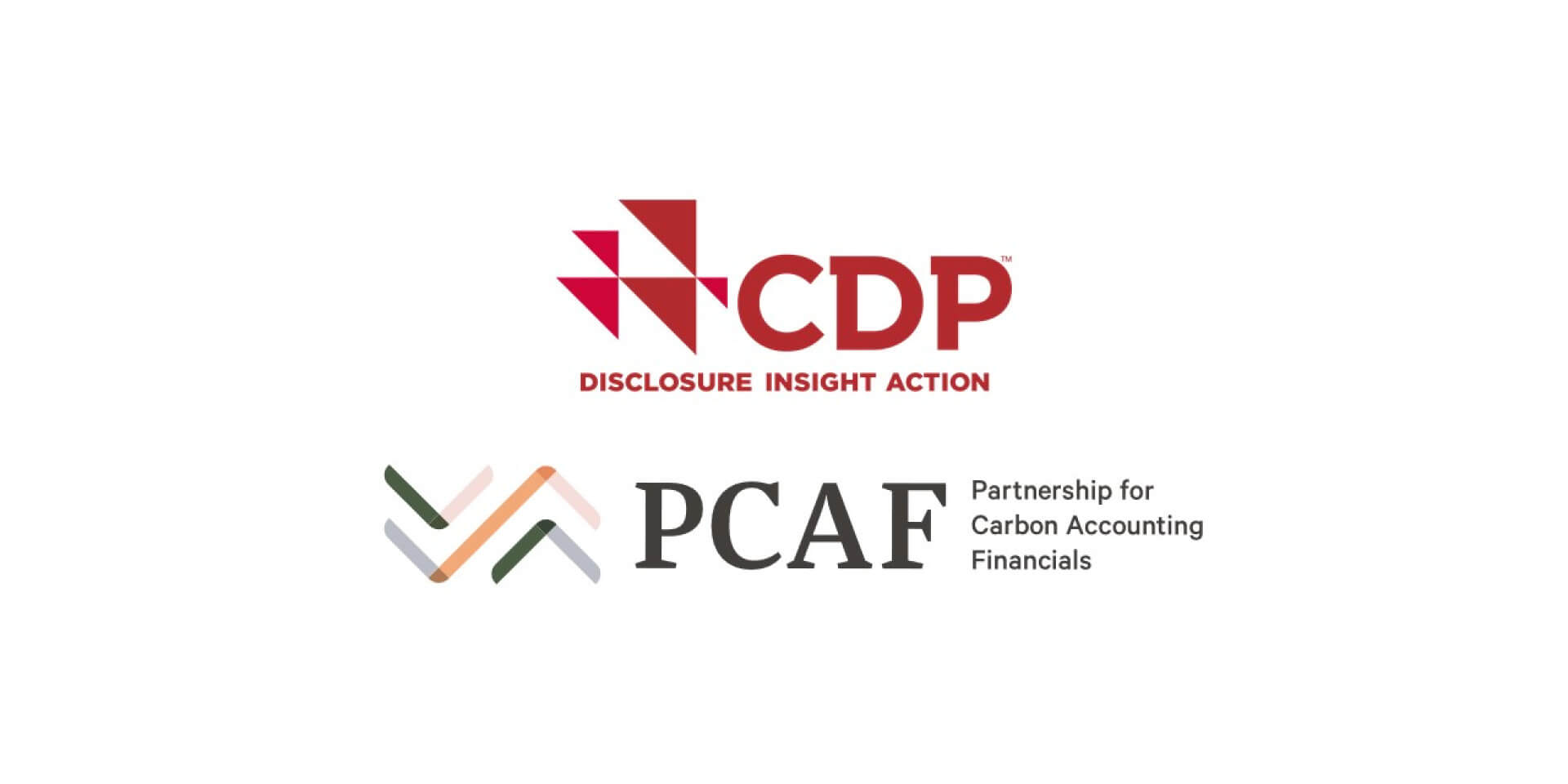
Utrecht/London, 14 December 2021 – The Partnership for Carbon Accounting Financials (PCAF) and the non-profit global environmental disclosure platform CDP today announce a collaboration to enhance the capacity of financial institutions to measure and disclose their financed emissions using the PCAF Global GHG Accounting and Reporting Standard for the Financial Industry.
This partnership will allow PCAF and CDP to combine their resources and networks to promote the PCAF Standard and to increase assessment and disclosure of financed emissions amongst financial institutions globally. Through its goal of capacity building, this collaboration aims to help financial institutions to better understand their climate impact and exposure to carbon-intensive industries.
The assessment and disclosure of financed emissions gives financial institutions insight into their portfolios’ carbon footprints and alignment with global climate goals. In line with the recommendations of the Task Force on Climate-related Financial Disclosures (TCFD), PCAF and CDP provide accessible steps to calculating and disclosing financed emissions.
Almost all financial institutions’ climate impact and risk is driven by the activities they finance in the wider economy, with CDP research finding that financed emissions are 700 times greater than operational emissions. However, only a quarter of financial institutions disclosing to CDP report their portfolio emissions. Through this collaboration, CDP and PCAF hope to see a growth in the number of financial institutions reporting financed emissions in line with the PCAF Standard, and through CDP’s Financial Services Climate Change Questionnaire, to fill the critical data gap in climate reporting.
“I’m very pleased to partner with CDP to drive consistent climate-related disclosure globally. Scope 3 financed emissions measurement and disclosure of financial institutions is an essential step. It’s great to see that CDP has integrated this into their Financial Services Questionnaire. By collaborating with CDP, we can support financial institutions globally with measurement and disclosure of their climate impact.”
Giel Linthorst, Executive Director, PCAF
PCAF and CDP will work together to develop and provide workshops, reports, and case studies for their respective networks of financial institutions. The material will focus on accounting and TCFD-aligned reporting of financed emissions, line with the PCAF Standard. Case studies will be used to demonstrate how the PCAF Standard along with CDP’s disclosure platform have been beneficial to other financial institutions’ understanding of climate risks and opportunities.
In addition, CDP will enhance its Full GHG Emissions Dataset in 2021 to provide a Data Quality Score for each emissions figure contained within the dataset, in line with PCAF’s Data Quality Scoring system. The CDP Full GHG Emissions Dataset contains reported and modelled emissions figures of over 7,200 companies.
“Through capital flows and portfolio alignment with net-zero, the financial sector has a pivotal role to play in realizing a net-zero and nature positive economy. However, financial institutions that fail to disclose their financed emissions risk underestimating the climate-related impact of their portfolios. Robust and transparent disclosure of financed emissions provides the market with a baseline assessment of climate-related risks, as well as crucial data to track progress toward the net-zero transition.
CDP is delighted to partner with PCAF to help financial institutions measure their overall climate impact and to meet the ever-greater need for robust data in this area.”
Claire Elsdon, Joint Global Director of Capital Markets at CDP
**For more information, please contact:
PCAF
Giel Linthorst
Executive Director, PCAF
info@carbonaccountingfinancials.com
Angélica Afanador
Programme Manager & Latin America Team Lead, PCAF
info@carbonaccountingfinancials.com
CDP
Sara Firouzyar
CDP
+44 (0) 2038 183 973 | sara.firouzyar@cdp.net
About the Partnership for Carbon Accounting Financials
The Partnership for Carbon Accounting Financials (PCAF) was launched globally in September 2019. Currently, more than 180 banks and investors have subscribed to the PCAF initiative. PCAF participants work together to jointly develop the Global GHG Accounting and Reporting Standard for the Financial Industry to measure and disclose the greenhouse gas emissions of their loans and investments. By doing so, PCAF participants take an important step to assess climate-related risks, set targets in line with the Paris Climate Agreement and develop effective strategies to decarbonize our society.
Learn more at: https://carbonaccountingfinancials.com
About CDP
CDP is a global non-profit that runs the world’s environmental disclosure system for companies, cities, states and regions. Founded in 2000 and working with more than 590 investors with over $110 trillion in assets, CDP pioneered using capital markets and corporate procurement to motivate companies to disclose their environmental impacts, and to reduce greenhouse gas emissions, safeguard water resources and protect forests. Over 14,000 organizations around the world disclosed data through CDP in 2021, including more than 13,000 companies worth over 64% of global market capitalization, and over 1,100 cities, states and regions. Fully TCFD aligned, CDP holds the largest environmental database in the world, and CDP scores are widely used to drive investment and procurement decisions towards a zero carbon, sustainable and resilient economy. CDP is a founding member of the Science Based Targets initiative, We Mean Business Coalition, The Investor Agenda and the Net Zero Asset Managers initiative. Visit cdp.net or follow us @CDP to find out more.